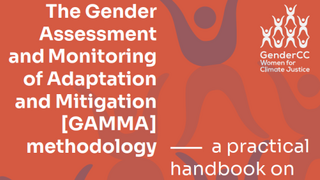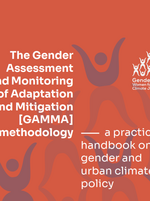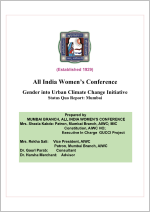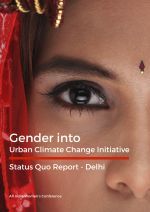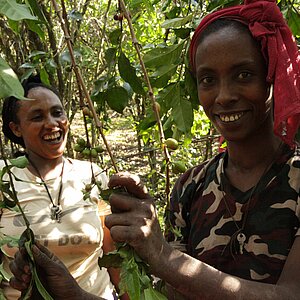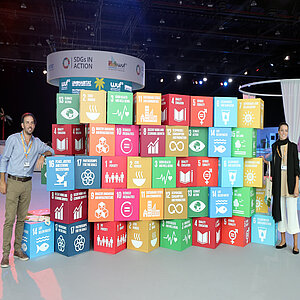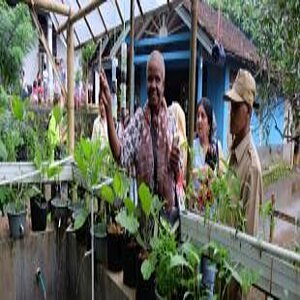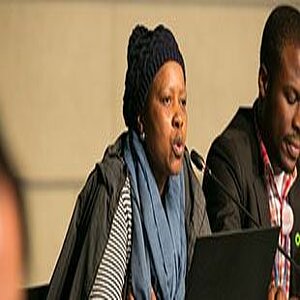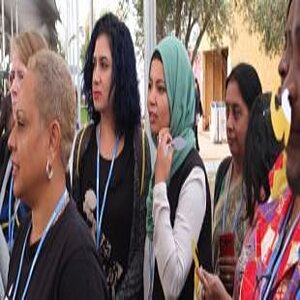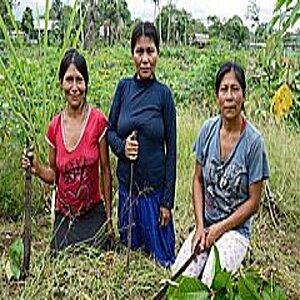Gender into Urban Climate Change Initiative concluded
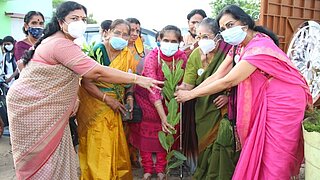
14 cities, 4 countries- the project GUCCI was a pioneer action!
And it was the very first project working towards gender-responsive urban climate policy in collaboration with women’s and gender organisations.
After six years of intense work, the project, funded by the International Climate Initiative (IKI), has been concluded with an international online conference and a parallel event at CSW66. It was carried out by the organisation GenderCC in partnership with four women’s and gender organisations, the All India Women’s Conference (India), Aksi! (Indonesia), Equidad de Género (Mexico) and GenderCC Southern Africa (South Africa), and focused on the integration of gender into urban climate policy.
Methodology for gender analysis developed
GenderCC developed a gender analysis approach called ‘Gender Assessment and Monitoring of Mitigation and Adaptation’ (GAMMA) together with the partners who applied this approach in 14 pilot cities in the four countries. Based on the assessment, they developed policy recommendations for their cities, as well as gender responsive pilot projects, reached out to the public and carried out numerous training sessions for stakeholders such as city officials and local communities. Moreover, the approach was adapted in order to be applied at national and provincial levels and tested in the four countries.
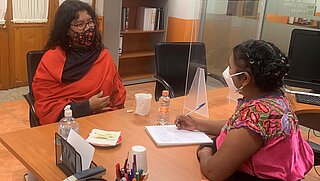
Gender-just climate policy in practice
The experience gained in the project demonstrated that working towards low-carbon and resilient cities goes very well together with working towards gender equality. Moreover, it shows that the deep transformation we need requires the full integration of gender justice. At the end of the project, the partners are able to present a number of recommendations on what is needed at urban and national level to work towards this transformation.
Partner organisations have for example identified huge policy gaps at institutional level. They found out that the understanding of gender and climate change among national and local governments is still very poor. Women are perceived only as a vulnerable group, who are the target of climate adaptation. Meanwhile, climate mitigation policies and actions do not yet integrate a gender perspective.
Three key areas for the integration of gender perspectives
A solution can be found in the GUCCI partners’ overall recommendations: three key areas have been identified such as ‘Institutional development’ of gender expertise, ‘capacity building’, as well as ‘community involvement’. Regarding the first of those areas, governments should establish a particular unit to handle gender-responsive climate actions, develop a Gender Action Plan and gender indicators for all climate change policies and actions at the national and city level.
In order to enhance the gender expertise at institutional level, local councillors should be trained to deal with gender differentiated impacts of climate policies and and there should also be a mandatory gender sensitization training for knowledge enhancement of officials/stakeholders at all levels. Concerning the community involvement, it is important to involve women's, environmental, community-led organisations and possibly other civil society groups throughout the process, including policy planning and implementation, as well as evaluation of climate change actions.
Gender-specific data are missing
Another gap that the project partners identified is that the national governments do not yet have gender-disaggregated data, for example on energy access, transportation, and sanitation. That kind of data would help in developing national and regional plans responding to the needs of all genders. GUCCI partners are encouraging the national government to support more in-depth research on the gender issues in climate change and take on board the outcomes of its results.
E-learning course available
Even under the challenges of the Covid-19-Pandemic in the last 2 years, all partners have successfully completed the project. Among the achievements is now a well-tested method and procedure in place, enhanced by the rich experience of the partners, to address climate and gender justice at urban levels that works for other levels as well. The approach can be applied by women’s and other civil society organisations, as well as city officials and urban policy-makers who can use GAMMA for a self-assessment. The approaches developed and experiences obtained during the project are summarised in a booklet, and an E-Learning course at GenderCC’s Global Learning Platform offers basic knowledge on urban climate policy and gender.
All project partners would be delighted if more civil society groups and cities would take up their approach and make use of the GAMMA booklet and the E-learning course. They see a crucial role of civil society to raise awareness, provide capacity building, push for climate and gender justice, and monitor urban climate change policies.
In the future, all project partners would like to roll out this programme to other countries and cities.
The link has been copied to the clipboard
Contact
IKI Office
Zukunft – Umwelt – Gesellschaft (ZUG) gGmbH
Stresemannstraße 69-71
10963 Berlin



